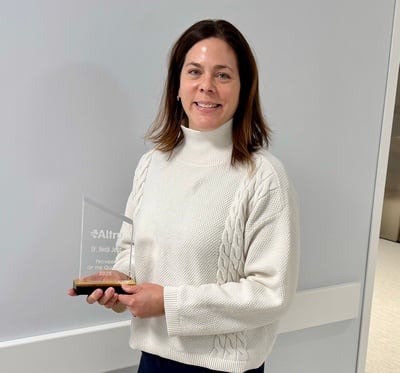Vehicular heatstroke is one of the leading causes of non-crash, vehicle-related death for children 14 and younger in the United States. Parents and caregivers who think child heatstroke deaths could “never” happen on their watch should think again. Tragically, “never” does happen.
The U.S. Department of Transportation’s National Highway Traffic Safety Administration (NHTSA) urges parents and caregivers to learn about and share critical information about the dangers of leaving children alone in hot cars. Help us spread the word: Once You Park, Stop, Look, Lock. Since 1998, when safety advocates first began tracking, vehicular heatstroke has killed more than 1000 children. Each death was preventable, and unfortunately, we have seen a tragic death from this cause in our state.
• More than half (52.6%) of these tragedies occur when a child is “forgotten” by a parent or caregiver and left in a hot car. A busy parent or caregiver may unintentionally forget that a quiet or sleeping child is in the back of the vehicle.
• More than half (58%) of these heatstroke deaths occur at home.
• Nearly one-third of these tragedies occur with children under one year of age. Why are hot cars so unsafe? For starters, internal vehicle temperatures can raise quickly and become up to 50 degrees warmer than the outside air temperatures. So even if it’s a cool day outside, a vehicle may still pose a threat to a child. A child’s body temperature increases 3 to 5 times faster than an adult’s.
In 2024, 39 children died due to vehicular heatstroke, an increase of 35% from the prior year. The death rate has been lower in recent years. On average, 37 children die each year as a result of vehicular heatstroke. “We have to teach our children that the vehicle is not a playground, and that playing in and around the car is dangerous,” said Jasmine Wangen, NW Minnesota Child Passenger Safety Liaison. “On average, one child dies from heatstroke every 10 days in the United States from being left in a car or crawling into an unlocked vehicle. What is most tragic is that every single one of these deaths could have been prevented.”
Toddlers and young children are also at risk of vehicular heatstroke, and they are more likely to climb into a vehicle without supervision. Children “gaining access” to a vehicle accounts for nearly one-quarter of child heatstroke fatalities. Some children climb into a vehicle without the knowledge of an adult and may be unable to exit the car, especially if child locks are activated. The bottom line and message to mothers, fathers, and caregivers — anyone is susceptible to forgetfulness. It doesn’t matter who you are, what you do, or where you come from: In a fast-paced society, routines are often upended at a moment’s notice. It is during these moments of hurriedness and change in routine that many of these preventable tragedies occur. For this reason, it is more important than ever to remember:
Once You Park, Stop, Look, Lock. NHTSA urges all parents and caregivers to do these three things to help prevent child heatstroke:
• When getting out of a car, make it a habit to look in the back seat EVERY time.
• NEVER leave a child in a vehicle unattended, even for one minute.
• ALWAYS lock the car and put the keys out of reach.
If a bystander sees a child in a hot vehicle:
• Make sure the child is okay and responsive. If not, call 911 immediately.
• If the child appears to be okay, attempt to locate the parents or have the facility’s security or management page the car owner over the PA system.
• If two people are around, one person should actively search for the parent while the other waits at the car.
• If the child is not responsive or appears to be in distress, attempt to get into the car to assist the child, even if that means breaking a window. Some states have “Good Samaritan” laws that protect people for getting involved to help a person in an emergency.
Warning signs of heatstroke include:
• red, hot, and moist or dry skin;
• no sweating;
• a strong, rapid pulse or a slow, weak pulse;
• nausea;
• confusion; or
• acting strangely.
If a child exhibits any of these signs after being in a hot vehicle, quickly spray the child with cool water or with a garden hose — NEVER put a child in an ice bath. Call 911 or a local emergency number immediately.
Remember: Once You Park, Stop, Look, Lock.
For more information on vehicle heatstroke, visit www.nhtsa.gov/campaign/heatstroke. For current data, visit noheatstroke.org. For an interview or additional local information, please contact Carma Hanson at 701.739.1591 or chanson@altru.org or Jasmine Wangen at jwangen@altru.org




